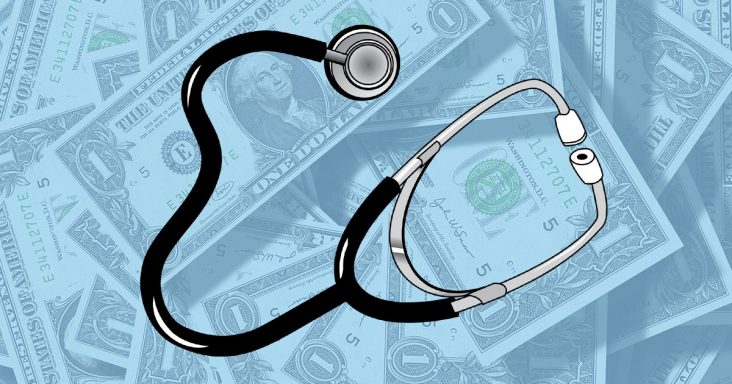Edison Healthcare boss calls for more, better medical testing
by June 9, 2019 6:46 pm 913 views

The epidemic of medical misdiagnoses is a very real problem in the United States and comes with much too high a price for individuals and companies.
Tom Emerick, president and cofounder of Edison Healthcare and author of “Cracking Health Costs” and “An Illustrated Guide to Personal Health,” discussed the epidemic during the Fort Smith Area Chamber of Commerce’s First Friday Breakfast June 7.
“We are having a very high rate of misdiagnoses in America,” Emerick said.
To illustrate the epidemic, Emerick noted that 10 years ago, there was a rash of women being told they needed back surgery when the problem was heart related. Women with heart angina and atypical symptoms often presented with back pain. Many general practitioners referred these patients to an orthopedic surgeon who recommended back surgery because “almost everyone has a back problem that will show up,” Emerick said.
“The last thing these women need to have is spine surgery when you have a bad heart. It can’t help you. It can kill you,” he said.
Emerick also noted that 30% of cancer cases in the United States are misdiagnosed.
“I’ve known three people personally who were told they had cancer, started cancer treatment and found out they didn’t have cancer. That’s a train wreck,” he said. “If anyone is told they have cancer, they need to go to a specialty clinic like MD Anderson or the Mayo Clinic or something of the sort.”
Emerick said pathologists have a 20% error rate of reading slides, which means cancer is being diagnosed when it is not present. He noted that Mercy in Springfield, Mo., has two pathologists who read every slide. If they do not agree on the diagnosis, they send it to the Mayo Clinic, he said. They are now getting their cancer diagnoses right 99% of the time, he said. When it comes to quality of health care, the first thing is to get the diagnosis correct.
“If you are misdiagnosed, everything that follows harms you,” he said.
Following a correct diagnosis, the next step is to make certain the treatment plan is the correct one and that plan is executed correctly, he added. In order to ensure correct diagnoses, Emerick suggests the use of centers of excellence, such as the Mayo Clinic. He said companies need to offer this to employees with their healthcare coverage, noting that the expense for allowing it would be much smaller than the expense of a misdiagnosis.
“The idea needs to be to get people the best care available,” Emerick said.
He also said in the coming years, there need to be more healthcare systems becoming centers for excellence, which are defined as specialized programs within healthcare institutions that supply “exceptionally high concentrations of expertise and related resources centered on particular medical areas and delivered in a comprehensive, interdisciplinary fashion,” according to the U.S. National Library of Medicine National Institutes of Health.
Emerick predicts a growth in centers for excellence over the next few years. He also predicts a growth in gene studies for individuals, another thing he said healthcare plans should cover.
“If you have an employee on 10 medications, you can bet they are not working 100%. There is drug interference or the drug is not working for that person,” he said.
Drug-gene testing, also called pharmacogenomics or pharmacogenetics, is “the study of how your genes affect your body’s response to medications,” information on the Mayo Clinic’s website states. “Your body has thousands of genes that you inherited from your parents. Genes determine which characteristics you have, such as eye color and blood type. Some genes are responsible for how your body processes medications. Pharmacogenomic tests look for changes or variants in these genes that may determine whether a medication could be an effective treatment for you or whether you could have side effects to a specific medication.”
This testing can help health care providers prescribe better and more effective medication for patients, the site said. Most health insurance plans do not cover the testing, but employers should add it to coverage for their patients, Emerick said.
“The expense of the testing will be recovered in the long run,” he said. “There is a lot you can do at this level help your employees, and this in turn makes the company much more productive.”
